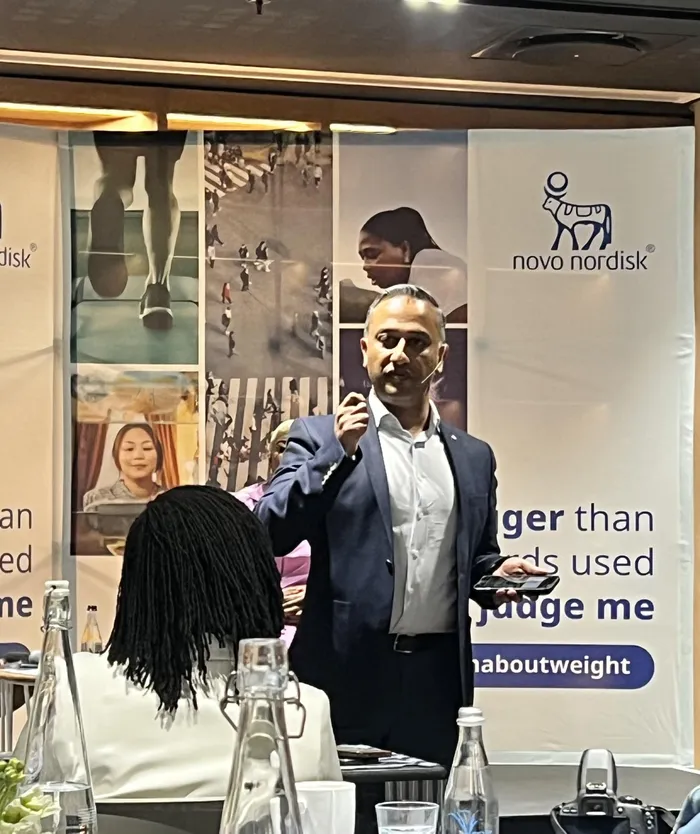
Recognising obesity as a chronic disease is crucial for changing the conversation from one of blame to understanding and treatment.
Image: Natasha Chizhevskaya /Pexels
"Eat less and move more."
We hear this often, as if obesity were simple to solve. But science reveals otherwise. Obesity isn't about willpower; it's a chronic disease recognised by the World Health Organisation (WHO) and impacts far more than the number on the scale.
For women, the dangers of obesity go beyond appearance or stigma.
Excess abdominal weight is linked to hormonal imbalances, pregnancy complications and even changes to a baby’s DNA, called epigenetic programming.
Why does the WHO call obesity a chronic disease
The WHO now classifies obesity as a chronic disease because it is complex, long-term, and relapsing. It involves a mix of genetic, biological, psychological, social and environmental factors that go beyond personal choice.
Research published in The Lancet shows that 40–70% of obesity has a genetic basismeaning biology, not lack of effort, plays a big role.
At the South African launch of Wegovy, the first once-weekly GLP-1 therapy approved locally for obesity, Dr Kershlin Naidu, an endocrinologist at Netcare Waterfall City Hospital, explained it best: “Treating obesity isn’t about willpower. It’s about the science.
"Obesity is a journey, and the body often fights weight loss through mechanisms like metabolic adaptation, where the body slows metabolism and increases hunger hormones to push you back to your old weight.”

As Dr Naidu astutely remarks, “Obesity is not a personal failure; it’s a medical condition that requires care, compassion, and science-driven solutions.”
Image: vuyile madwantsi
Naidu’s metaphor, “grab your metaphorical backpacks and let’s unpack this together,” invites us into the conversation, demystifying complexity with warmth.
He walks us through six intertwining causes of obesity:
Why is obesity more dangerous for women?
Obesity impacts everyone differently, but women face unique risks because of hormones, pregnancy and fat distribution patterns.
Hormonal imbalances and fertility: Excess abdominal fat disrupts estrogen and insulin levels. This is why women with obesity are more likely to develop polycystic ovary syndrome (PCOS), a condition that affects fertility and raises the risk of diabetes and heart disease, according to the Journal of Clinical Endocrinology & Metabolism.
Pregnancy complications and fetal DNA changes: Maternal obesity not only affects the mother, but it also alters the child’s future. A 2021 review in Nature Reviews Endocrinology found that maternal obesity can trigger epigenetic changes, altering the expression of genes without altering the underlying DNA sequence. This raises the child’s risk of obesity, diabetes, and metabolic disorders later in life.
Naidu calls this “fetal programming”: “When a pregnant woman is obese, it changes how her baby’s genes are expressed. That child is already at a higher risk of becoming obese, continuing the cycle.”

The World Health Organisation (WHO) has recently reclassified obesity as a chronic disease, emphasising that it is a complex condition influenced by a myriad of factors, far beyond mere personal choice.
Image: Kaboompics.com
Visceral fat
Not all fat is equal. Visceral fat (umkhaba), which builds up around the abdomen and organs, is particularly harmful. Unlike the fat under the skin (subcutaneous fat), visceral fat is metabolically active; it releases hormones and inflammatory chemicals that increase the risk of:
The US National Institutes of Health reports that women with high levels of visceral fat face a significantly higher risk of cardiovascular complications, even if their overall weight seems moderate.
Mental health burden
Beyond the physical toll, obesity carries a heavy emotional weight. Social stigma and body shaming often lead to anxiety, depression, and low self-esteem, especially among women. This can fuel emotional eating, creating a vicious cycle that’s difficult to break.
Obesity doesn’t just affect health; it drains economies, too. A 2022 study from the University of the Witwatersrand estimated that South Africa spends R33 billion annually on obesity-related healthcare costs.
That’s nearly 15% of the national health budget.
From stigma to solutions
Understanding obesity as a chronic disease changes the conversation. It’s not about blame, but about treatment and support. According to Naidu, a multifactorial approach combining lifestyle changes, medical therapy, and emotional support is the only sustainable solution.
Medications like Wegovy, backed by over 15 years of safety data and studies involving more than 20 million people worldwide, are giving new hope. Clinical trials have shown that it not only aids in weight loss but also reduces the risk of heart attacks and strokes.
Obesity is no longer just about aesthetics; it’s about life expectancy. Studies show that severe obesity can cut a woman’s life short by up to 10 years.
To put that in perspective, that’s time you could have spent witnessing milestones like your child’s graduation, the birth of a grandchild, or finally taking that dream trip.
"Obesity is not a personal failure; it’s a medical condition that requires care, compassion, and science-driven solutions."
For women especially, it carries risks that ripple through generations.
As Naidu reminds us: “Obesity is a journey. And no one should have to walk it alone.”